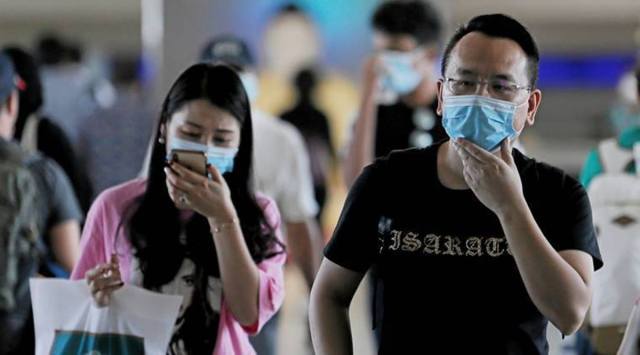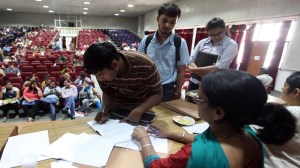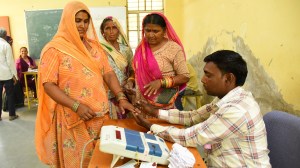- India
- International
Lessons in pandemic control from Korea and Taiwan
Use of big data, technology hold the key to the successful experiences of countries in the East.
 One setback is that Japan requires additional testing for vaccines approved overseas, and only the Pfizer vaccine is now in use.
One setback is that Japan requires additional testing for vaccines approved overseas, and only the Pfizer vaccine is now in use.Written by N K Ganguly
Since August, India has tested more than a million samples per day. However, large scale testing alone will not be enough to tackle the COVID-19 pandemic. Lessons learnt from East Asian countries such as Taiwan, South Korea, and China show that smart testing, contact tracing, along with quarantine, and civic responsibility are necessary for the successful reopening of the economy.
Taiwan has now gone more than 200 days without a single domestic case, and it has achieved this by not only mass-scale testing but by smart testing. It has identified clusters efficiently and quarantined the affected areas. Contract tracing was done on a war footing. This has helped it in keeping other parts of the country open. This has led to Taiwan’s registering an economic growth of 3.3 per cent in the July to September period. Taiwan will be one of the few countries in the world this year whose growth will not contract due to efficient and strict Covid-19 controls imposed by the government.
South Korea suffered the worst outbreak at the beginning of the pandemic, apart from China. However, due to extensive contract tracing, testing and transparency in public efforts, South Korea was able to control the initial onslaught of the virus. South Korea was one of the first countries to introduce drive through testing to reduce crowding and risk of contamination at hospitals. In all these countries, public mask mandates, high civic responsibility, coupled with a strong institutional response, led them to tackle the virus more efficiently.
China was also able to successfully scale up smart testing after the initial hiccup. Since March, the country has nearly flattened the growth of the virus. Whenever new cases appear in China, the entire province is tested immediately, clusters are identified, and cut-off from the rest of the city. Through extensive contact tracing, quarantine, China has been able to reduce the number of cases drastically.

All these countries made extensive use of big data and technology in smart testing, contact tracing and were able to curb the spread of the virus. Though it may invoke privacy concerns elsewhere, the citizens were ready to let go of their important data for the greater good.
In India, in contrast, the government has scaled up mass testing, without effective contact tracing, and quarantine efforts. This led to a spike in cases after the reopening of the economy in July. Lack of trust, ineffective communication and transparency have worsened the situation in India, as it heads towards winter which is likely to lead to a spike in cases.
For India, countries such as Taiwan, South Korea represent a better model, since they are all democracies, and face problems similar to India. India had its first COVID-19 case on January 30, and the number of cases did not seriously escalate until March. During this period, India let go of important time to prepare itself better for the coming escalation. It could have better prepared itself by acquiring personal protective equipment (PPE) for frontline workers, masks, medical oxygen, etc. During this period, India should have brought in a national law for mandated masks use in public places to control the spread of the virus. Further, India should have used the lockdown period to create a smart testing and tracing strategies with a cluster-community based approach, based on which the lockdown could have been eased gradually, instead of haphazardly.
South Korea and Taiwan have already started preparing a delivery system for an effective COVID-19 vaccine. They have shared the testing details with vaccine makers to help make more effective vaccines. In India, diagnostic companies such as GenePath Diagnostics are measuring viral load quantitatively in COVID-19 tests and sharing the data with vaccine makers, so as to help them make more informed decisions.
India is thankfully ahead of the curve in the realm of vaccination. The Central government has established an expert panel on COVID-19 vaccination, which is coordinating efforts with different government agencies, states and private players. India has one of the world’s most robust vaccine manufacturing programmes and hopes to use this to curtail the spread of the disease, as and when a vaccine is available. India is also planning on creating a digital health ID, which will help identify people who have been vaccinated or not.
India has had one of the most successful inoculation programmes in polio vaccination, and that offers important lessons on how to tackle the COVID-19 pandemic. Testing and tracing will continue to be important even if vaccines become available in the near future, as they will help in identifying potential hotspots, and will provide the opportunity to nip the virus in the bud and stop it from further spreading.
India should carefully examine its shortcomings in tackling the virus and prepare for the long haul. The good thing is that we have a lot of best practices to learn from across the world, and from within. India needs to design a smart testing, tracing and quarantine strategy, keeping in mind that it reaches the most underprivileged and under-resourced communities.
The writer is Former Director General, ICMR
EXPRESS OPINION
More Explained
Apr 24: Latest News
- 01
- 02
- 03
- 04
- 05









































